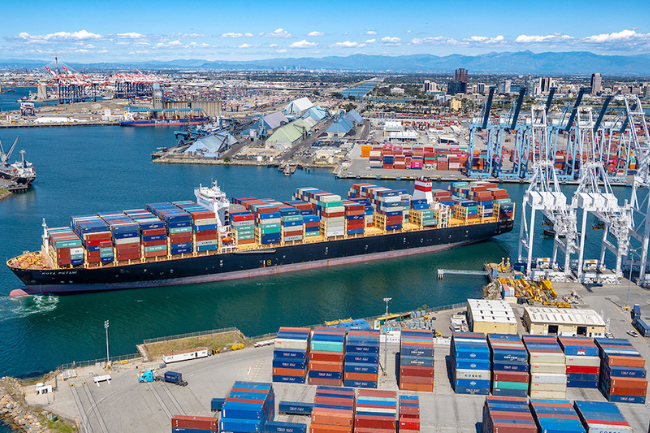The global trade and industry are facing a new challenge as the Red Sea, a vital route for cargo movement between Asia and Europe, becomes increasingly unsafe due to the attacks by Yemeni rebels on shipping vessels.
The attacks have forced some shippers to divert their vessels to longer and more expensive routes, affecting consumers around the world who rely on imported and exported goods.
Dawn reported, quoting the former chairman of the Pakistan Ship Agents Association Mohammad Rajpar, that the attacks by Houthi militants have caused a surge in freight charges, as some major shipping lines have imposed a $1,500 surcharge, resulting in an almost 100% increase in freight rates. He warned that the situation could worsen in the next six to 12 months if the attacks continue and the security and welfare of seafarers are not ensured.
While the trade between Pakistan, China, and the Far East is expected to remain unaffected, the trade with European and American countries via the Red Sea could face significant delays and difficulties.
Some businessmen have expressed concern that the ocean freight could rise to $5,000 per container, if the commercial ships opt for the alternative route via the southern tip of Africa, bypassing the Suez Canal. This could extend the arrival times by up to 20 days and increase the fuel costs.
The Suez Canal, which connects the Mediterranean Sea and the Red Sea, is one of the most important waterways in the world, as it shortens the distance between Asia and Europe by thousands of kilometers. However, in times of crisis, some shipping lines prefer to take the longer route via Cape Town to avoid the risk of attacks.
This could have a negative impact on the prices of both imported and exported goods, as the exporters may need to maintain a larger inventory of raw materials to cope with the delays.
According to a report by Reuters, Denmark’s Maersk said on Sunday that it was preparing to resume shipping operations in the Red Sea and the Gulf of Aden, citing the deployment of a US-led military operation designed to ensure the safety of commerce in the area.
The shipping giant paused sending vessels through the Bab el-Mandeb strait earlier in December due to attacks against its ships.
The United States said on December 19 it was launching a multinational operation to protect trade in the Red Sea from Yemeni rebels, who have been firing drones and missiles at international vessels since last month in what they say is a response to Israel’s war in Gaza.




